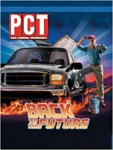You’ve seen it: the scorned executive running to his car with his hand up over his face as he hollers "No comment!" What do you think when you see this? Are you embarrassed for him? Do you think he’s guilty? Innocent? Would you buy a product/service from his company?
Chances are you’ve already found him guilty and have decided to only buy XYZ product/service from his competitor.
In today’s high-risk world, crises happen all the time. They come in the form of natural disasters, sexual harassment cases, corporate subterfuge or accidents on the jobsite. While it is very difficult to prepare or plan for any of these problems, as they are all extremely different and complex, there is one consistent element in all of them for which companies MUST be prepared — media attention.
It’s the media attention that creates the high drama situation described in the first paragraph. How do you avoid this type of situation? You need to have a crisis communication plan firmly in place to deal with media attention. Unfortunately, when companies are thrust into crisis situations, communication is typically one of the first things to break down. And the media like nothing more than to cover a company that is unprepared to handle their difficult, probing questions. Without a solid crisis plan, companies tend to spin into a whirlwind of miscommunication, typically featuring poorly spoken executives, multiple untrained spokespeople and masses of incorrect information.
So, what is a crisis communications plan? It’s a document that details every person’s responsibilities when crisis strikes. Two important decisions need to be made when formulating one:
1. Who is best suited to be the company spokesperson? If it’s not your president or CEO, that’s OK, just be sure that the person best represents the company’s interests and is well spoken in public. The company spokesperson should also be available around the clock for media inquiries.
2. What requirements have your insurance companies/attorneys developed that will affect you in crisis situations? Are there certain topics you can or cannot discuss? Will any statements increase your chance of being held liable? Be sure these rules and regulations are clear — it will save you time in a crisis.
Another component of a crisis communication plan for a professional pest control company could include instructions and directions for technicians and customer service representatives on how to handle customer inquiries in a time of crisis. Will they be referring all calls to the company president/spokesperson? Or, will they be expected to disseminate a company statement, if asked? Detailing the roles of these company members will reduce the likelihood that an unapproved spokesperson, like a technician out on a job, will end up quoted in the media.
DOs AND DON’Ts. Be sure that everyone in your company has a copy of the following media dos and don’ts:
Media Dos:
· Have your spokesperson return all media calls promptly (within one hour).
· No one but the official company spokesperson should speak to the media.
· Short and sweet answers are better than long winded ones.
· Stick to the facts. Don’t guess!
· Pay attention to nonverbal communication. You may be saying all the right things but your dress or hand gestures could contradict you.
Media Don’ts:
· Most important: Never say, "No comment" — always say, "We will do our best to find out that information and get back to you."
· There should be no discussion between technicians or customer service representatives in front of customers or the media.
Also, consider compiling a list of local media. In a time of crisis, you may decide it is important to proactively communicate with the press and don’t need to spend the time trying to remember the call letters for all your local radio stations. This list should include the contact information (name, phone, fax and e-mail) for the news director or editor at each media outlet. Try and refresh this document on a quarterly basis. Many media outlets experience frequent turnover in positions and a quick call every three months can save you time down the road.
Finally, don’t forget that you have an ally in times of crisis in the Professional Pest Management Alliance. PPMA has an experienced team of media relations professionals ready, willing and able to assist when times are tough. The PPMA team has combated several major industry crises, including the recent Journal of the American Medical Association flawed study about pesticides in schools. The organization is happy to help you craft message points, spokesperson statements and much more.
There is nothing worse than being unprepared when the media comes calling. Several hours now can save you weeks of drama and embarrassment come crisis time. Consider creating a crisis communication plan as soon as possible!
The author is vice president public affairs, National Pest Management Association/ executive director Professional Pest Management Alliance. She can be reached at cmannes@giemedia.com.

Explore the November 2005 Issue
Check out more from this issue and find your next story to read.
Latest from Pest Control Technology
- Donny Oswalt Shares What Makes Termites a 'Tricky' Pest
- Study Finds Fecal Tests Can Reveal Active Termite Infestations
- Peachtree Pest Control Partners with Local Nonprofits to Fight Food Insecurity
- Allergy Technologies, PHA Expand ATAHC Complete Program to Protect 8,500 Homes
- Housecall Pro Hosts '25 Winter Summit Featuring Mike Rowe
- Advanced Education
- Spotted Lanternflies, BMSBs Most Problematic Invasive Pests, Poll Finds
- Ecolab Acquires Guardian Pest Solutions





